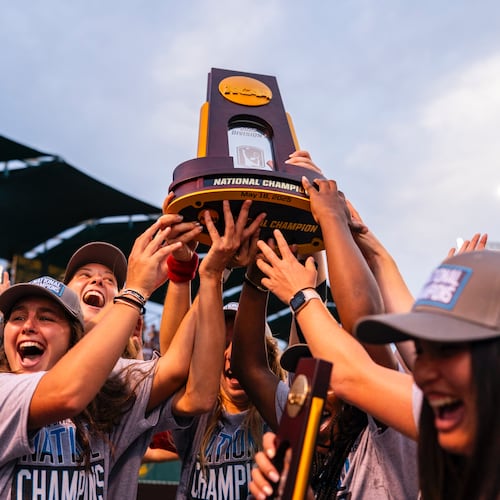Q: “NIL” is a big issue in college sports. What does it mean, and why is it important?
A: NIL stands for name, image and likeness. Under long-time NCAA rules, college athletes weren’t allowed to profit from their NIL through endorsements, personal appearances, autograph signings and the like. That is about to change, thanks to new laws in Georgia and other states.
Q: Why is July 1 a significant date in terms of NIL rights?
A: That’s when new laws take effect in six states -- Georgia, Alabama, Florida, Mississippi, New Mexico and Texas -- giving college athletes the right to make money from their fame without jeopardizing their eligibility. Kentucky’s governor issued an executive order giving NIL compensation rights to college athletes in that state as of July 1. In addition, Oklahoma and Nebraska have laws that schools can implement at any time, and Arizona has a law that takes effect July 23. Governors in 10 other states have signed NIL laws that go into force later: Arkansas, California, Colorado, Maryland, Michigan, Montana, Nevada, New Jersey, South Carolina and Tennessee.
Q: What does the Georgia law say?
A: Passed by the state legislature in March and signed by Gov. Brian Kemp in early May, House Bill 617 states that athletes can be paid amounts “commensurate with market value” for the commercial use of their name, image or likeness. The law requires athletes to report their NIL deals to their schools, requires schools to provide “financial literacy and life skills” training to athletes, allows athletes to be represented by agents or attorneys “in relation to contracts or legal matters” and forbids “an intercollegiate athletic association,” such as the NCAA or a conference, from penalizing an athlete for receiving NIL compensation.
The Georgia law doesn’t permit schools to pay athletes for use of their NIL and doesn’t permit payments from any source as recruiting inducements or pay-for-play. It includes a provision that gives schools the option of requiring athletes to contribute up to 75% of their NIL earnings into a fund for the benefit of other athletes, but schools appear unlikely to use that pooling option.
Q: How will the NCAA deal with varying state laws?
A: State laws supersede NCAA rules, but the NCAA hopes Congress will pass federal legislation that creates a uniform national policy. Such action isn’t imminent, although a U.S. Senate committee held two hearings on the matter this month. In the meantime, the NCAA is looking to formulate an interim policy that would spread NIL compensation rights to athletes enrolled at schools in states that haven’t enacted new laws.
About the Author
Keep Reading
The Latest
Featured


